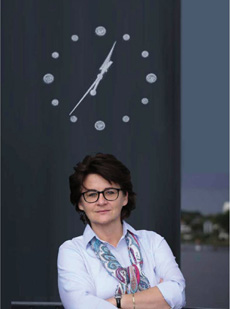October 30, 2012 | News | In the Press
More Life to Live

MPIDR Researcher Jutta Gampe © MPIDR/Fotostudio Hagedorn
Demographers have watched with amazement as human mortality risk has continued to decline. This downward trend has now lasted for well over 100 years. What was once the statistical investigation of death has long since become the science of long life. This is the issue that occupies MPIDR demographer Jutta Gampe.
Life expectancy is a tricky thing to figure out. There are scientific formulas for predicting how long people will live, but the results of these formulas should be taken with a pinch of salt—at least if the goal is to find out how long we can really expect to live.
The potential for confusion is great. If the Federal Office of Statistics is to be believed, the life expectancy of a girl born in 2009 is 82 years and seven months (for boys it is 77 years and six months). But researchers at the Max Planck Institute for Demographic Research in Rostock have calculated that each baby born in the year 2009 in the Federal Republic of Germany has a 50 percent chance of living at least 100 years. How is that possible?
Read the whole article in the current issue of Max Planck Research on the pages of the Max Planck Society (in German).